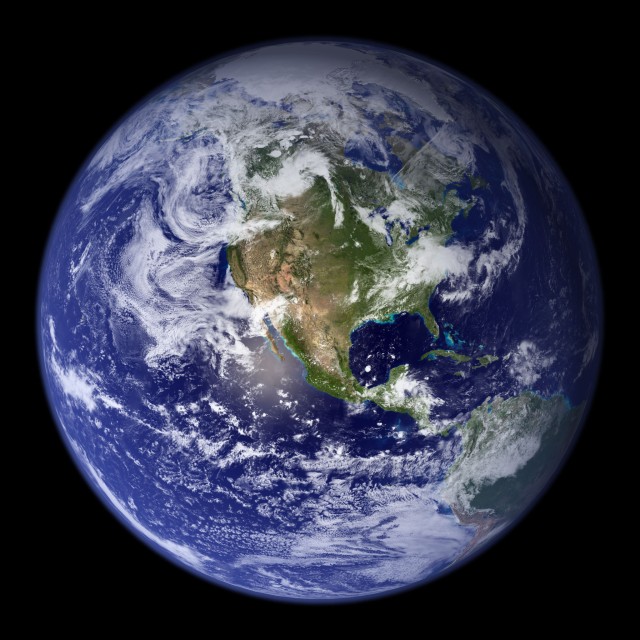Introduced by Simon Coleman

Photo source: https://www.shutterstock.com/video/clip-2718089-stock-footage-grass-sunset.html
“There came to my bedside this morning a visitant that has been present at the bedside of everyone who has lived for ten thousand years. In the darkness I was conscious of a faint light not visible if I looked deliberately to find it, but seen sideways, and where I was not gazing. It slipped from direct glance as a shadow may slip from a hand-grasp, but it was there floating in the atmosphere of the room. I could not say that it shone on the wall or lit the distant corner. Light is seen by reflection, but this light was visible of itself like a living thing, a visitant from the unknown. The dawn was in the chamber, and by degrees this intangible and slender existence would enlarge and deepen into day. Ever since I used to rise early to bathe, or shoot, or see the sunrise, the habit has remained of waking at the same hour, so that I see the dawn morning after morning, though I may sleep again immediately. Sometimes the change of the seasons makes it broad sunlight,
sometimes it is still dark; then again the faint grey light is there, and I know that the distant hills are becoming defined along the sky. But though so familiar, that spectral light in the silence has never lost its meaning, the violets are sweet year by year though never so many summers pass away; indeed, its meaning grows wider and more difficult as the time goes on. For think, this spectre of the light – light’s double-ganger – has stood by the couch of every human being for thousands and thousands of years. Sleeping or waking, happily dreaming, or wrenched with pain, whether they have noticed it or not, the finger of this light has pointed towards them. When they were building the pyramids, five thousand years ago, straight the arrow of light shot from the sun, lit their dusky forms, and glowed on the endless sand. Endless as that desert sand may be, innumerable in multitude its grains, there was and is a ray of light for each. A ray for every invisible atom that dances in the air – for the million million changing facets of the million ocean waves. Immense as these numbers may be, they are not incomprehensible. The priestess at Delphi in her moment of inspiration declared that she knew the number of the sands. Such number falls into insignificance before the mere thought of light, its speed, its quantity, its existence over space, and yet the idea of light is easy to the mind. The mind is the priestess of the Delphic temple of our bodies, and sees and understands things for which language is imperfect, and notation deficient. There is a secret alphabet in it to every letter of which we unconsciously assign a value, just as the mathematician may represent a thousand by the letter A. In my own mind the idea of light is associated with the colour yellow, not the yellow of the painters, or of flowers, but a quick flash. This quick bright flash of palest yellow in the thousandth of an instant reminds me, or rather conveys in itself, the whole idea of light–the accumulated idea of study and thought. I suppose it to be a memory of looking at the sun–a quick glance at the sun leaves something such an impression on the retina. With that physical impression all the calculations that I have read, and all the ideas that have occurred to me, are bound up. It is the sign – the letter – the expression of light. To the builders of the pyramids came the arrow from the sun, tinting their dusky forms, and glowing in the sand. To me it comes white and spectral in the silence, a finger pointed, a voice saying, ‘Even now you know nothing.’ Five thousand years since they were fully persuaded that they understood the universe, the course of the stars, and the secrets of life and death. What did they know of the beam of light that shone on the sonorous lap of their statue Memnon? The telescope, the microscope, and the prism have parted light and divided it, till it seems as if further discovery were impossible. This beam of light brings an account of the sun, clear as if written in actual letters, for example stating that certain minerals are as certainly there as they are here. But when in the silence I see the pale visitant at my bedside, and the mind rushes in one spring back to the builders of the pyramids who were equally sure with us, the thought will come to me that even now there may be messages in that beam undeciphered. With a turn of the heliograph, a mere turn of the wrist, a message is easily flashed twenty miles to the observer. You cannot tell what knowledge may not be pouring down in every ray; messages that are constant and perpetual, the same from age to age. These are physical messages. There is beyond this just a possibility that beings in distant earths possessed of greater knowledge than ourselves may be able to transmit their thoughts along, or by the ray, as we do along wires. In the days to come, when a deeper insight shall have been gained into the motions and properties of those unseen agents we call forces, such as magnetism, electricity, gravitation, perhaps a method will be devised to use them for communication. If so, communication with distant earths is quite within reasonable hypothesis. At this hour it is not more impossible than the transmission of a message to the antipodes in a few minutes would have been to those who lived a century since. The inhabitants of distant earths may have endeavoured to communicate with us in this way for ought we know time after time. Such a message is possibly contained sometimes in the pale beam which comes to my bedside. That beam always impresses me with a profound, an intense and distressful sense of ignorance, of being outside the intelligence of the universe, as if there were a vast civilization in view and yet not entered. Mere villagers and rustics creeping about a sullen earth, we know nothing of the grandeur and intellectual brilliance of that civilization. This beam fills me with unutterable dissatisfaction. Discontent, restless longing, anger at the denseness of the perception, the stupidity with which we go round and round in the old groove till accident shows us a fresh field. Consider, all that has been wrested from light has been gained by mere bits of glass. Mere bits of glass in curious shapes–poor feeble glass, quickly broken, made of flint, of the flint that mends the road. To this almost our highest conceptions are due. Could we employ the ocean as a lens we might tear truth from the sky. Could the greater intelligences that dwell on the planets and stars communicate with us, they might enable us to conquer the disease and misery which bear down the masses of the world. Perhaps they do not die. The pale visitor hints that the stars are not the outside and rim of the universe, any more than the edge of horizon is the circumference of our globe. Beyond the star-stratum, what? Mere boundless space. Mind says certainly not. What then? At present we cannot conceive a universe without a central solar orb for it to gather about and swing around. But that is only because hitherto our positive, physical knowledge has gone no farther. It can as yet only travel as far as this, as analogous beams of light. Light comes from the uttermost bounds of our star system – to that rim we can extend a positive thought. Beyond, and around it, whether it is solid, or fluid, or ether, or whether, as is most probable, there exist things absolutely different to any that have come under eyesight yet is not known. May there not be light we cannot see? Gravitation is an unseen light; so too magnetism; electricity or its effect is sometimes visible, sometimes not. Besides these there may be more delicate forces not instrumentally demonstrable. A force, or a wave, or a motion – an unseen light – may at this moment be flowing in upon us from that unknown space without and beyond the stellar system. It may contain messages from thence as this pale visitant does from the sun. It may outstrip light in speed as light outstrips an arrow. The more delicate, the more ethereal, then the fuller and more varied the knowledge it holds. There may be other things beside matter and motion, or force. All natural things known to us as yet may be referred to those two conditions: One, Force; Two, Matter. A third, a fourth, a fifth – no one can say how many conditions – may exist in the ultra-stellar space, beyond the most distant stars. Such a condition may even be about us now unsuspected. Something which is neither force nor matter is difficult to conceive; the mind cannot give it tangible shape even as a thought. Yet I think it more than doubtful if the entire universe, visible and invisible, is composed of these two. To me it seems almost demonstrable by rational induction that the entire universe must consist of more than two conditions. The grey dawn every morning warns me not to be certain that all is known. Analysis by the prism alone has quite doubled the knowledge that was previously available. In the light itself there may still exist as much more to be learnt, and then there may be other forces and other conditions to be first found out and next to tell their story. As at present known the whole system is so easy and simple, one body revolving round another, and so on; it is as easy to understand as the motion of a stone that has been thrown. This simplicity makes me misdoubt. Is it all? Space – immeasurable space – offers such possibilities that the mind is forced to the conclusion that it is not, that there must be more. I cannot thinkthat the universe can be so very very easy as this.”

